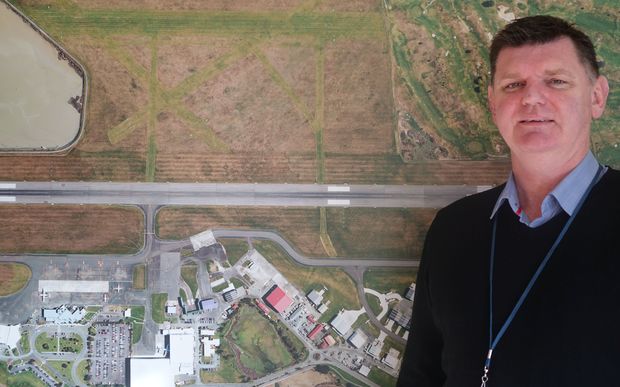Rob Evans, who has a history in airport management in New Zealand and Australia, predicts the airport will need to double in size over the next thirty years to accommodate expected growth.

An immediate challenge however is the possibility of housing three new regional airlines over and above the three existing carriers.
Originair in Nelson and Kiwi Regional Airlines in Hamilton have confirmed plans to operate flights to and from Nelson. And Jetstar has included Nelson on its shortlist for a new, but yet to be confirmed, regional service.
Nelson is currently served by Air New Zealand Link, Soundsair and Air2There which all operate scheduled commuter flights.
Mr Evans said increased aircraft movements translated to increased revenue for the company - a council-controlled and owned organisation.
But the biggest impact, he said, was on the community through increased options and more competitive air travel prices.
"We're not here to decide who should fly in or not, we're here to enable others to do business."
Mr Evans believed there was enough room in the market for an additional three carriers.
"It's about operating at a price point where the consumer gets a choice and when that happens that will stimulate more movements, and that will open up more opportunities for people to do business here. It [increased service] has a whole range of benefits that go well beyond the airport company.
"There are a lot of other vibrant economies in this region, including education which provide a good business case for airlines to fill aeroplanes."
The airport terminal currently sees more than 800,000 passengers a year through its doors, who board an average 60 commercial flights a day. Almost half are travelling for business.
Plans are being drafted for a terminal expansion and the airport company has appointed Wellington firms Studio Pacific Architects and Impact Project Management to the redevelopment project.
The airport precinct houses 35 aeronautical and support businesses, but a clear plan is needed to steer growth in a less ad hoc manner, Mr Evans said.
"We need to establish a really clear and strongly articulated master plan which protects our aeronautical business, but also the commercial and property real estate side of the business," he said.
The company has regularly posted strong earnings resulting in dividends returned to its shareholders, and ultimately the region's rate payers.
Mr Evans said the board is aiming for $3 million annual earnings before deductions in the next year - a $300,000 increase on the past four years.
Jet capacity might need to be considered if the region was to become a bigger hub on the main trunk routes, but Nelson would never be an international terminal, Mr Evans said.
"Absolutely not. New Zealand has more than enough international airports and we're not big enough to have a direct international connection, but runway extension is not out of the question. Expansion brings layer upon layer of cost and compliance and it's not as simple as people think."
He said Air New Zealand was looking at options for introducing a 90-seat turboprop aircraft to its fleet in next 10 years and that could make a big difference to Nelson airport.
Photo: Supplied - Rob Evans


